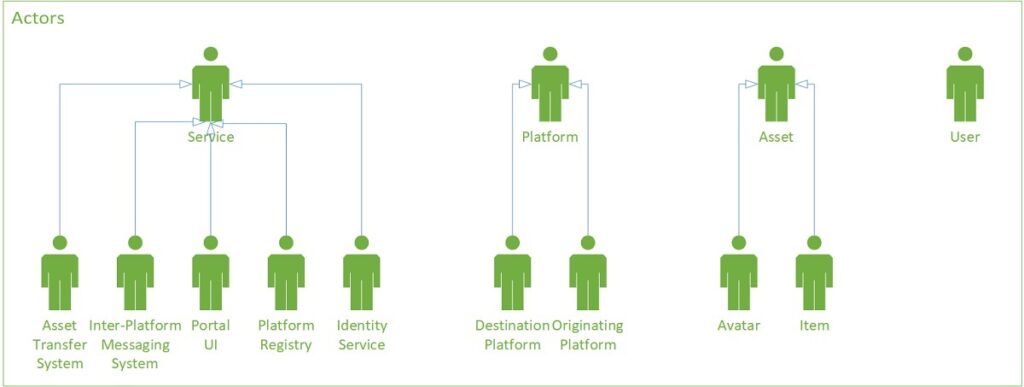The Open Metaverse Alliance (OMA3), a group of top metaverse companies, is spearheading the development of standards for a metaverse that is community–owned, decentralized, and usable across different platforms, according to a recent announcement.
Based in the Swiss technology hub of Zug, the non-profit aims to set standards and create a framework to help users control and own their digital assets, such as NFTs, in virtual worlds. It is also keen on improving performance based on reliability, resistance, and user privacy.
To do this, the project has introduced the Inter-World Portaling System (IWPS), a teleporting system that allows people to travel between different metaverse platforms, not just locations within the same virtual world.
Also read: Meta’s New Twitter Rival Tops 10M Users Hours After Launch
What is OMA3?
OMA3 is a collaborative effort involving over 40 web3 companies working in the metaverse, including game developers and infrastructure providers. Chaired by Upland’s Dirk Leuth, the group operates on three core principles of interoperability, ownership, and standardization.
OMA3 consists of five working groups: asset transfer, ecosystem, portaling and mapping, NFT, and the token working group. Some of the companies involved with the project include Sandbox, Alien Worlds, Decentraland, Animoca Brands, and blockchain firm Near.
The consortium’s portaling and mapping working group is currently the most active of all the groups.
The unit is leading efforts to explore the potential of portals in the metaverse. OMA3 claims that portals have the power to make the metaverse less complicated and more attractive for users, while creating new opportunities for developers to make money. But it is a complex endeavor.
We are proud to publicly announce our first major project: IWPS (Inter-World Portaling System). Thanks to @VentureBeat and @deantak for for sharing it: https://t.co/30JJ11EoqS. pic.twitter.com/rtZcvCgLao
— OMA3 (@oma3dao) July 3, 2023
Seamless metaverse travel
A key feature of the OMA3 initiative is its Inter-World Portaling System, whose goal is to make the metaverse more accessible to people. The system is to the metaverse what the HTTP standard was to the Internet, according to an OMA3 position paper on Github.
HTTP was a breakthrough technology that broke down the barriers between information silos. Before the tech, information was often trapped in isolated data repositories, making it difficult to access and share, the paper stated.
It created a common language that allowed different systems to communicate and interact, leading to an unprecedented flow of information on the worldwide web. Similarly, the IWPS is expected to allow users to move freely between different blockchain gaming metaverses.

OMA3 believes these online gateways could be the next big thing in technology, similar to how highways connect real-life locations. In some ways, portals could be thought of as the digital equivalent of a transportation system connecting different metaverse environments.
The move is intended to improve the metaverse experience for people. For example, users will be able to play games on Alien Worlds, buy land on My Neighbor Alice, and attend events in The Sandbox without having to switch between the different virtual platforms.
“Portals in the metaverse promise to create a new era of connectivity, accessibility, and productivity,” OMA3 said.
“They provide a means of ‘transportation’ within the digital realm, enabling users to move seamlessly between different metaverse platforms, thereby enhancing accessibility and engagement,” it added.
Rebuilding the metaverse dream
The metaverse is a virtual world where people can work, play, and socialize. It can be accessed through a variety of devices, including VR headsets and smartphones. The metaverse has been declared dead countless times, but it continues to flourish.
Companies such as Meta, Microsoft and Roblox are already using the metaverse. As MetaNews previously reported, British television programs Doctor Who and Top Gear are also coming to the metaverse.
The BBC is working with metaverse development company Reality+ to create a collection of immersive experiences based on the two shows in The Sandbox metaverse. Disney, Warner Music Group, and Universal have all created their own metaverse experiences.

The metaverse is seen as a major opportunity for media companies to reach new audiences and generate new revenue streams. This flurry of activity has necessitated the creation of a set of standards to guide the metaverse as it continues to develop, like OMA3 proposed.
Other entities are already working to reinvigorate the metaverse dream, which appeared to have receded in the wake of the ChatGPT-inspired artificial intelligence mania.
Fortnite creator Epic Games teamed up with Lego to develop metaverse products that could span both digital and real worlds. In Hollywood, movie makers are increasingly turning to metaverse-related technologies to bring fantasy worlds to life.
The Open Metaverse Alliance and its IWPS project invited web3 builders to contribute to their effort and help shape the future of the metaverse.









 and then
and then